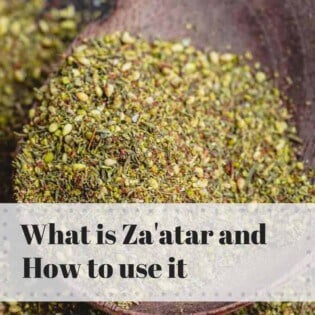
Mediterranean Spices
Baharat, pronounced ba-Ha-raght, is a Middle Eastern spice blend layered with sweet, earthy, spicy flavors, and a delicate florality. Learn everything you need to know about baharat spice in this essential guide, including: What is baharat? What’s in it? And my favorite ways to use it.
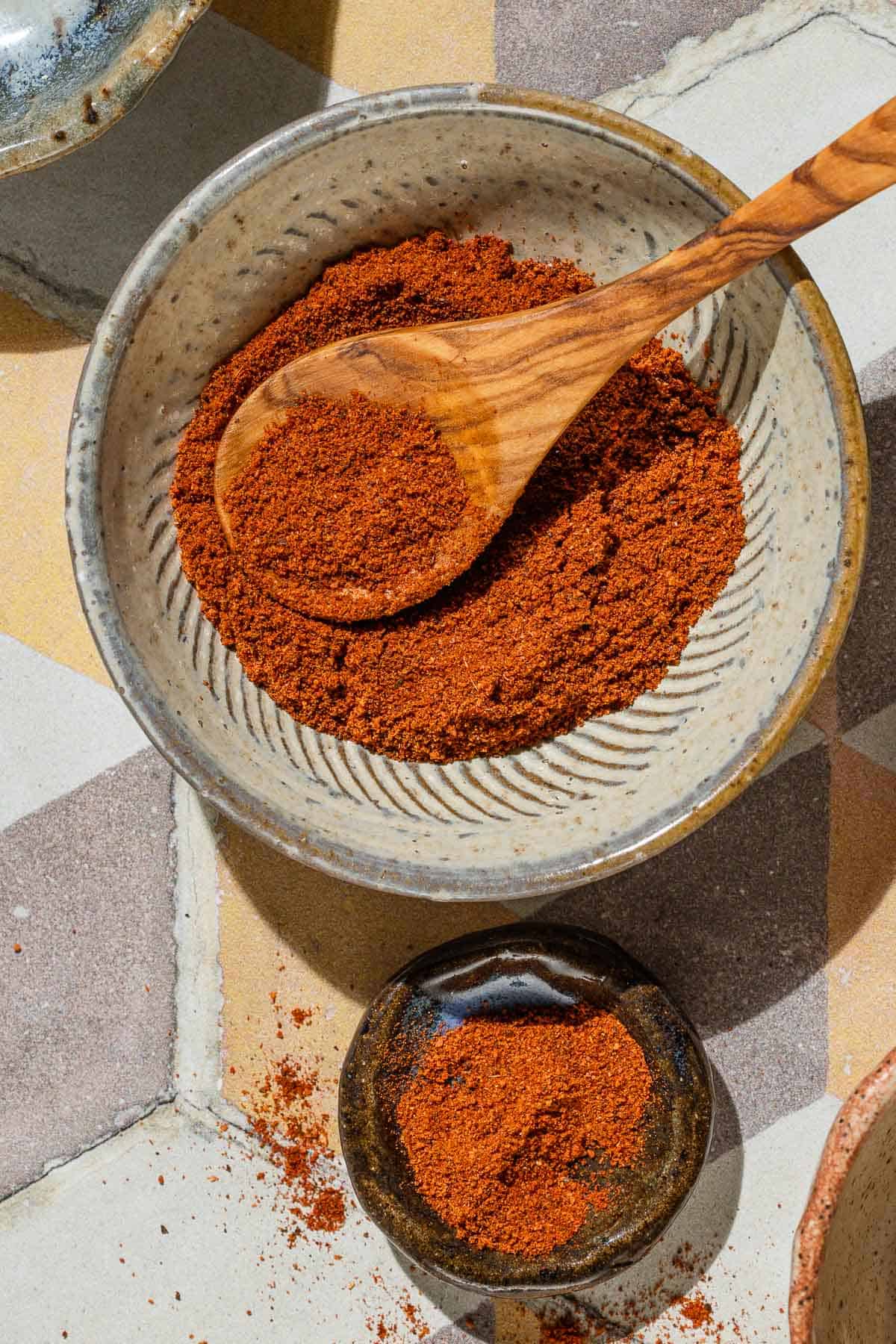
If you could bottle the quintessential Middle Eastern dance between sweet and savory, warming and spicy, and bold and delicate, it would be baharat spice blend. Just a dash of this Mediterranean pantry staple will bring big boldness to your weeknight baked chicken and date night chocolate pudding alike! You’ll be amazed at how much incredibly fragrant, complex flavor you can get with simple a mix of spices.
Baharat varies depending on the region, family, and, honestly, what grandma is feeling that day. It demonstrates the concept I talk about in my cookbook of letting your “nafas,” or guide your cooking. Nafas means “breath” or “soul” in Arabic. It's a hard concept to translate, but essentially it means to cook from your heart. Let your breath guide you rather than a set recipe.
Of course, you can grind, toast, and mix paprika, black pepper, coriander, cumin, cinnamon, nutmeg, allspice, and more to make your own personal Baharat blend. But, if your nafas are still in development, you can find this spice mixture at specially stores and our online shop.
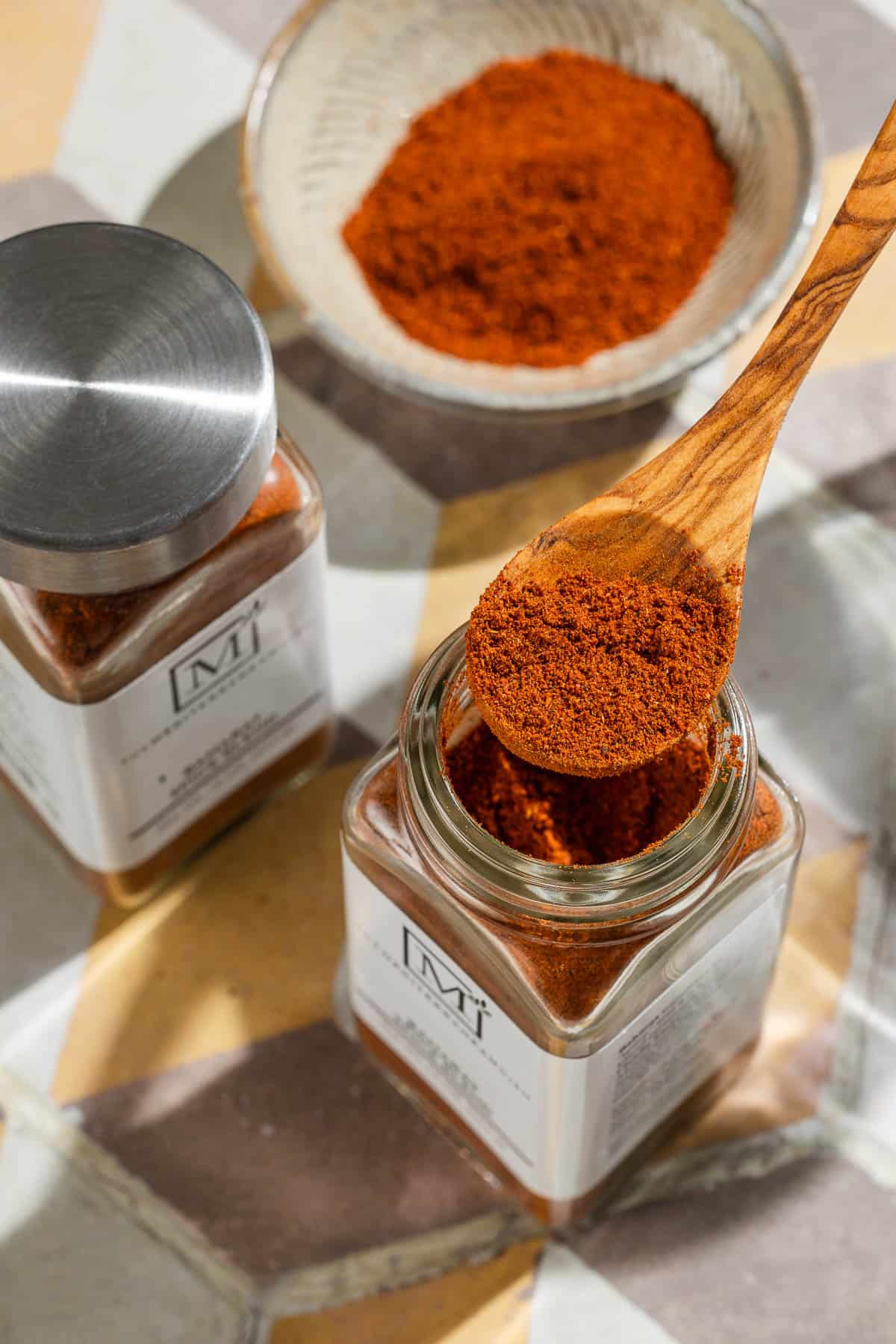
Baharat is a catch-all term for spice blend, from the Arabic word for “spices.” Like za’atar or ras el hanout, baharat spice is one of the many Eastern Mediterranean blends that has no exact definition or recipe.
But despite the nuance and variety, baharat’s basic flavor profile remains the same. It's a cozy blend of warming spices like cinnamon and nutmeg. Plus layers of savory spices like coriander and cumin, and a slow and gentle heat from ground chili and black pepper.
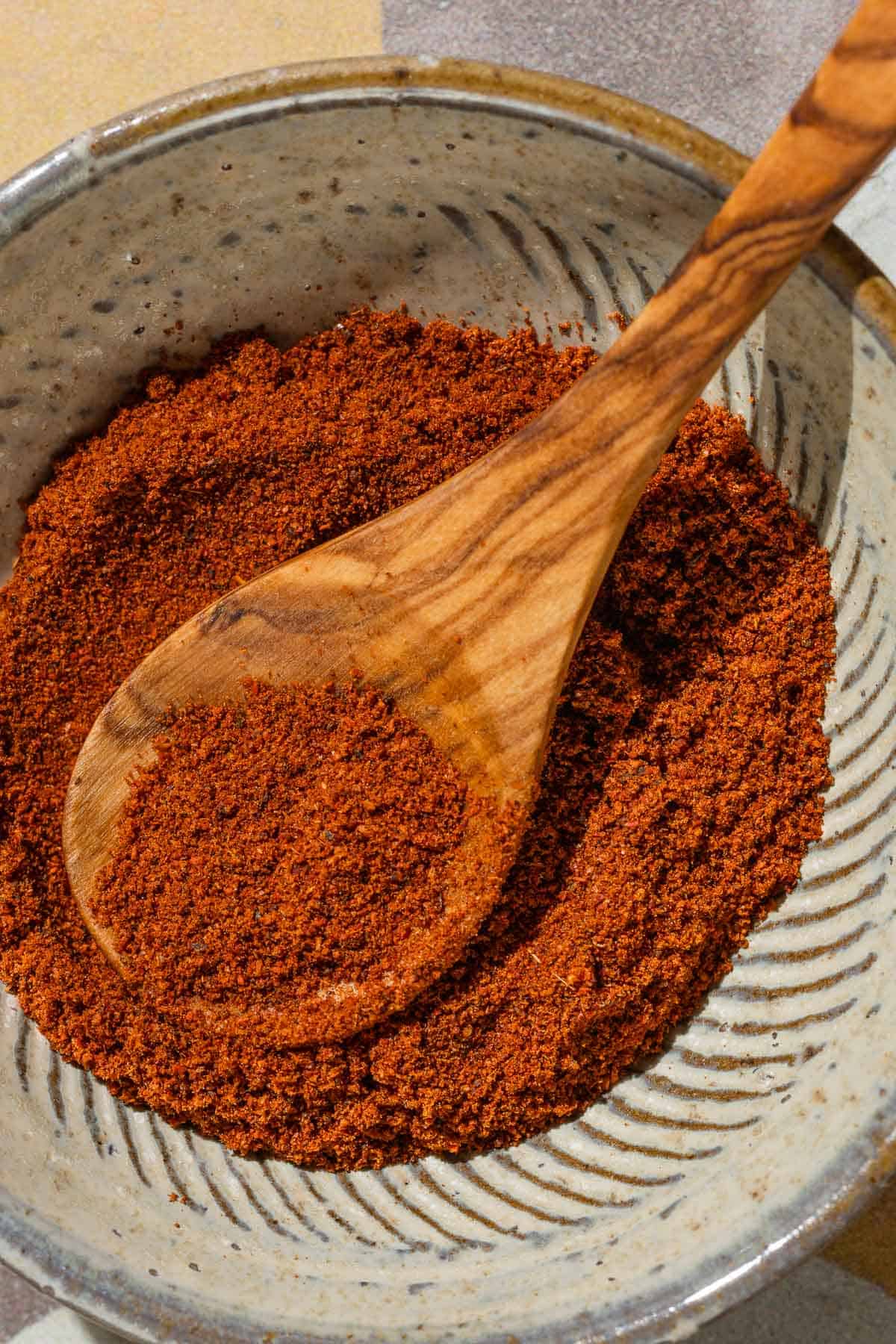
Baharat is a well-balanced mix of spicy, sweet, savory, and smoky. If you taste a pinch you might first notice the dominant flavors of coriander and cumin-earthy and a little bit floral. Then comes the warming, slightly sweet notes of spices like nutmeg and cinnamon.
You may begin to sense the sneaky heat slowly building from smoky and sweet paprika and spicy black pepper. Finally, you may notice more of a sensation rather than a flavor. That’s allspice’s complex flavor, which tends to linger once the flavors fade.
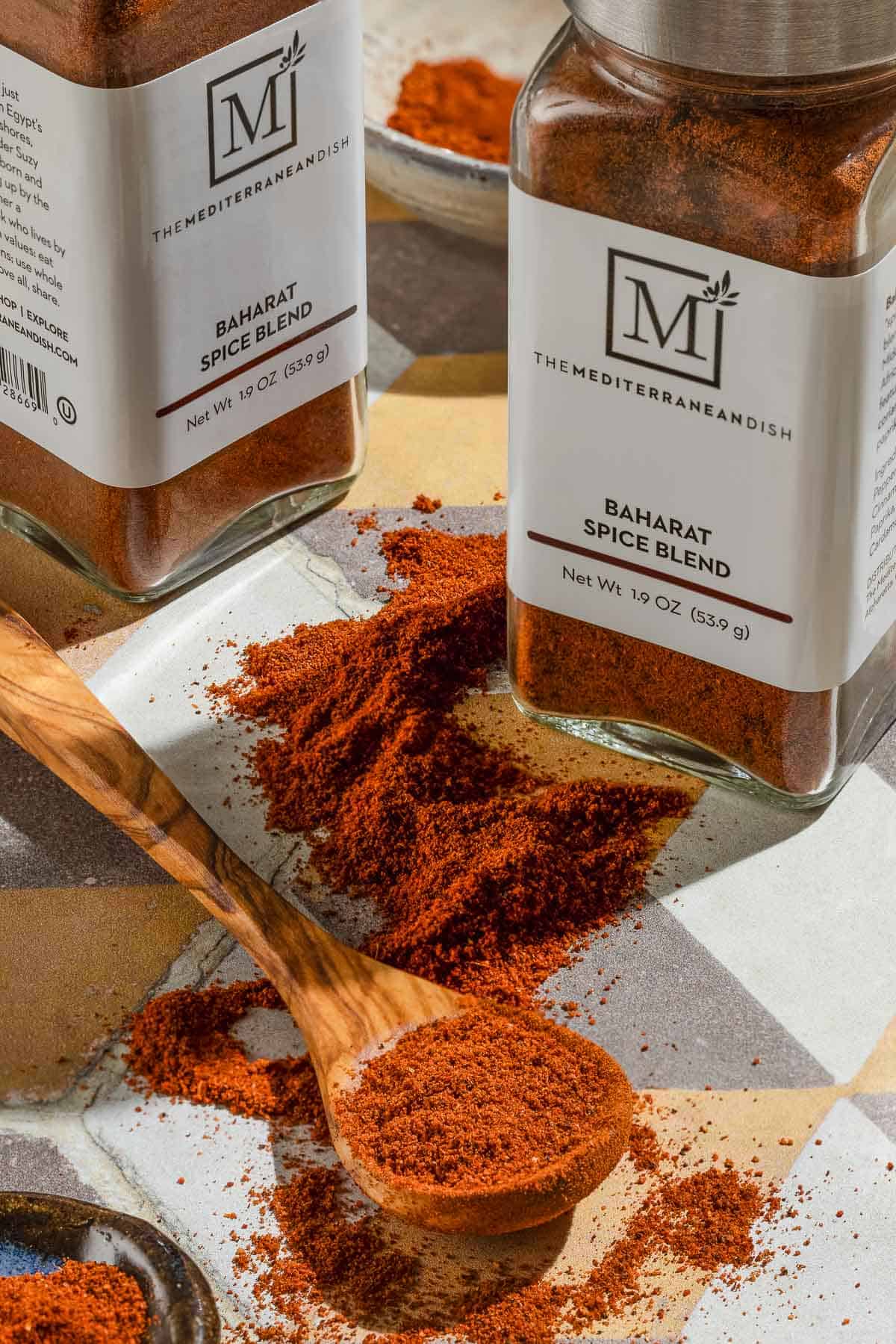
Baharat is still a lesser-known spice that you can sometimes find in the spice section of your grocery store, either under “B” or with the other blends.
But if your grocery store doesn’t have a wide variety, head over to our shop. We carry a curated selection of hard-to-find Middle Eastern and Mediterranean spices, along with my favorite version of baharat.
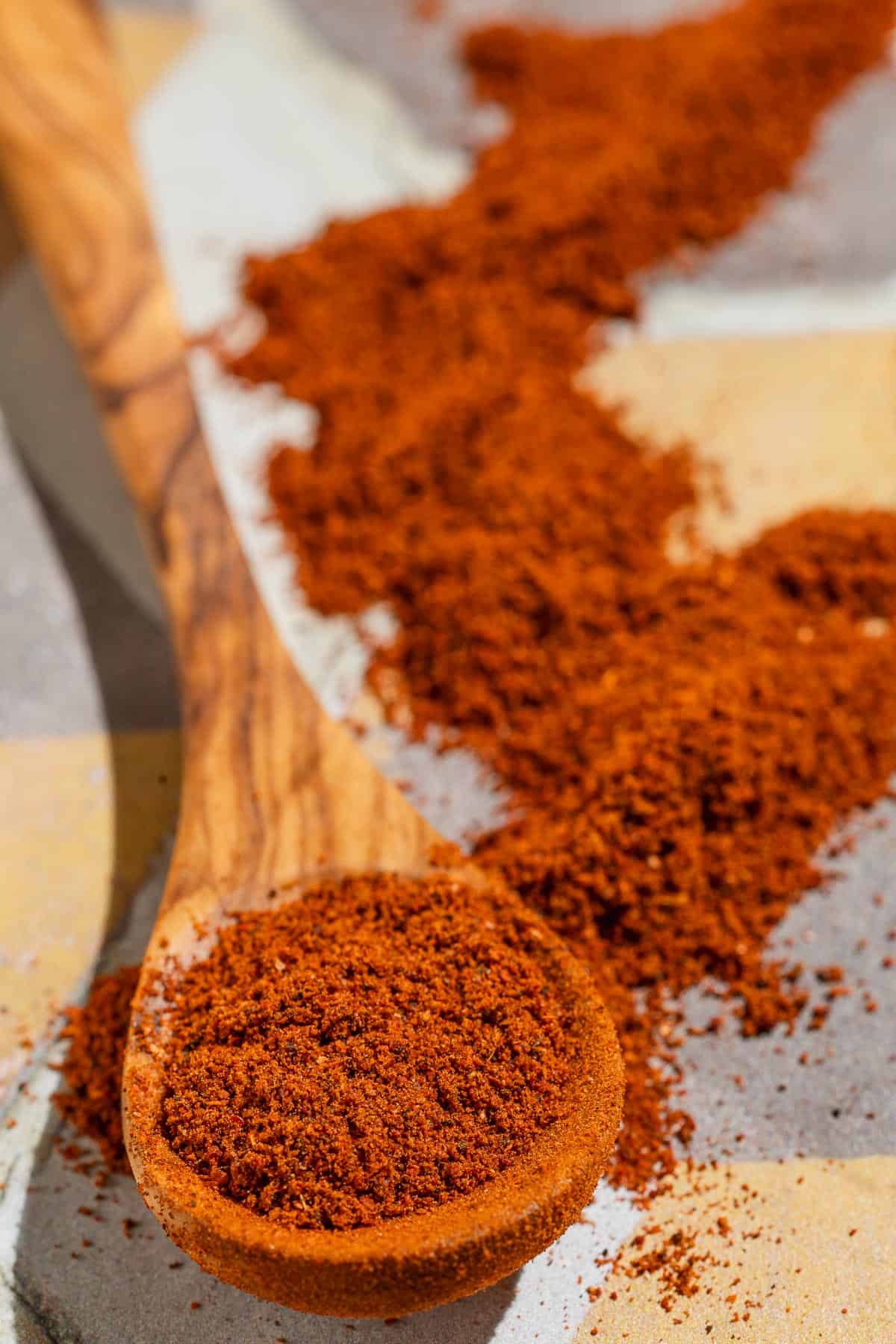
There’s really no great substitute for baharat, but the next best thing would be to use ras el hanout.
Generally speaking, the two spice blends share warming, sweet, and aromatic with spices like cinnamon, allspice, and nutmeg. The main difference comes down to a small nuance in earthy versus peppery spices, with ras el hanout taking on earthy note typical of yellow spices like turmeric and baharat boasting a sweet chili flavor reminiscent of red spices like paprika.
You can swap the two spice blends in savory dishes and both will add a delicious flavor to your dish, just keep in mind the color and flavor profile won’t be quite the same.
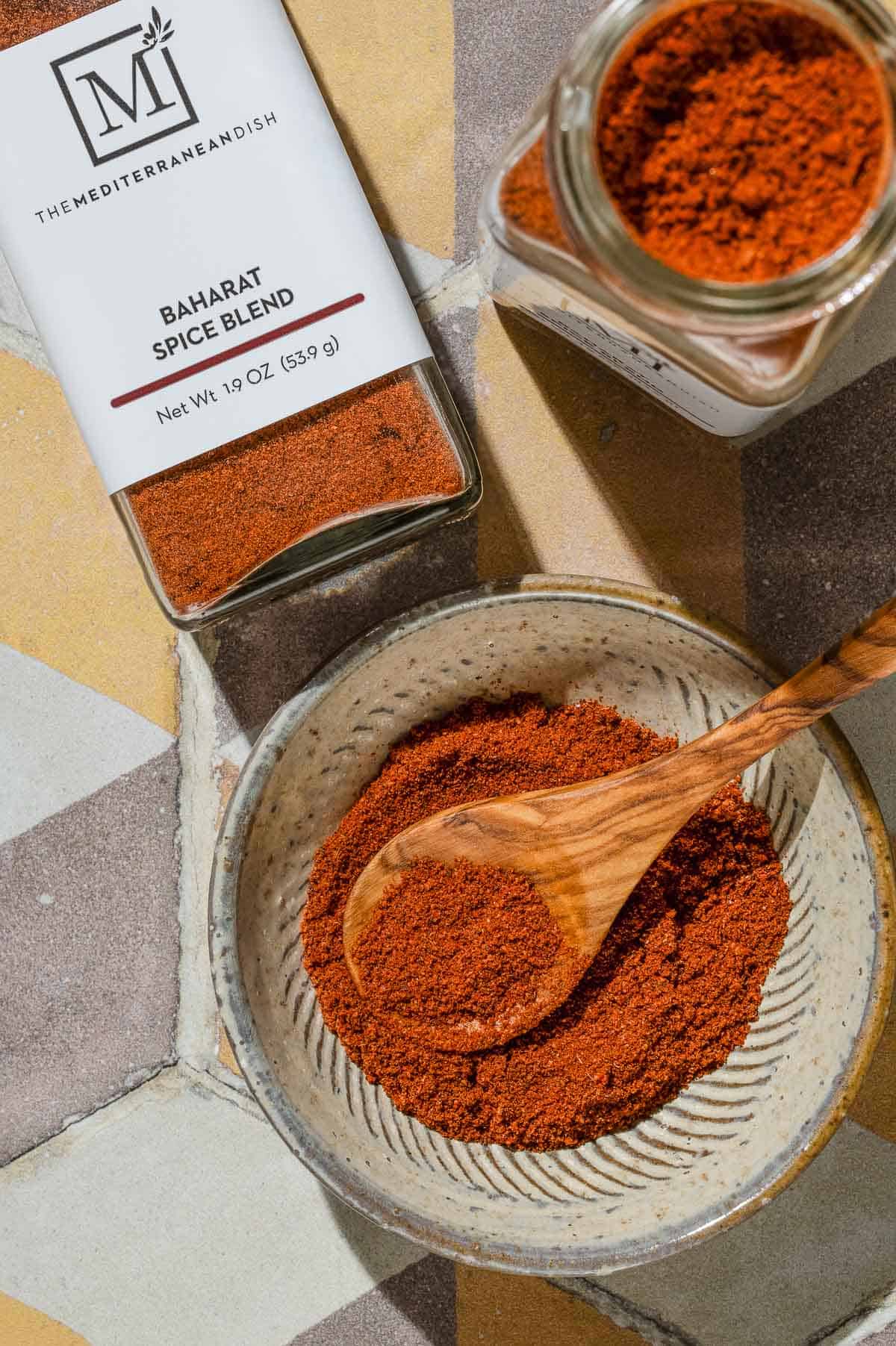
Baharat has a talent for fitting in, with sweets, meats, and more! Here are some ways to incorporate this aromatic spice blend into your everyday cooking:

Mediterranean Spices
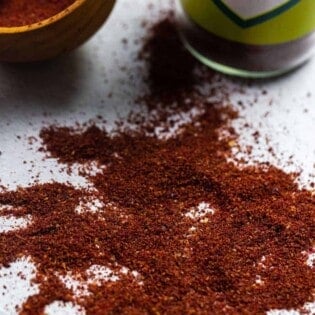
Pantry
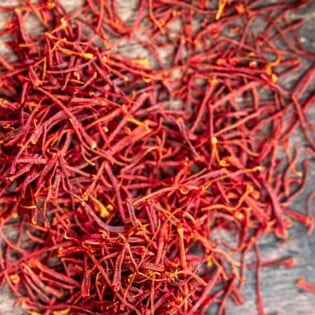
Ingredients
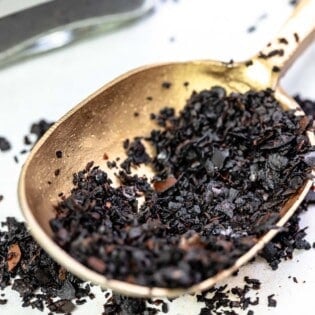
Mediterranean Spices
Browse all Mediterranean recipes.
Visit Our Shop.
Baharat Spice Blend
Try our signature Baharat Spice Blend with cardamom, coriander, cinnamon, paprika and more.
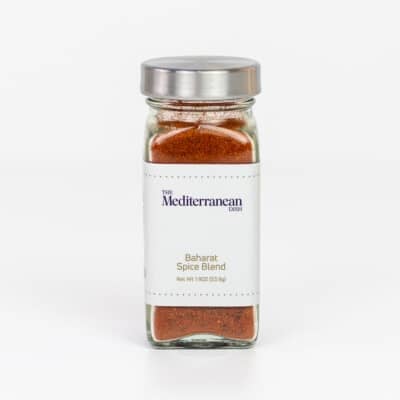
The post All About Baharat: The Warming, Spicy, Sweet-and-Savory Wonder Spice appeared first on The Mediterranean Dish.
By: Suzy KaradshehThe Mediterranean diet is generally inexpensive, with affordable and accessible ingredients. Many of the staple foods can be found at local supermarkets or farmers' markets. Shopping for organic, high-quality products, or special items, such as extra virgin oil, can be more costly. You should set a budget and plan your meals accordingly. Also, you can save money by using leftovers from other meals and bulk-freezing foods like fish and grain.
You will find fruits like oranges, grapes melons, melons, pears and dates in the Mediterranean Diet. To add more nutrition to your breakfast, you can try adding fresh fruit to smoothie bowls or parfaits. Greek yogurt can be spread on toast with dates and topped with some honey. Also, fresh fruit can be added to salads and can satisfy sweet-taste cravings. You can also enjoy healthy snacks like nuts, seeds and almonds. Also, dark chocolate may be a good option for antioxidants. For the authentic flavors of this ancient diet, try the local favorites from countries near the Mediterranean Sea.
Yes, the Mediterranean Diet is primarily a plant-based diet. This ancient diet focuses on plant-based foods such as fruits, vegetables legumes, nuts and seeds. However, animal proteins such as poultry, fish, and red meat are also present in smaller portions due to their traceable presence around the Mediterranean Sea historically. If you choose to eat a vegetarian or vegan diet, these protein sources can be eliminated. Other dairy sources such as soy yogurt and tofu are great options for extra nutrition and proteins.
Yes, milk is permitted on the Mediterranean diet. The Mediterranean diet is rich in dairy products, such as low-fat yogurts and cheese. These products provide calcium and other key nutrients. The nutritional benefits of milk are also worth considering. It should be enjoyed in moderation, with other beverages such as coffee or tea. If you prefer, it can be used to make smoothies and oatmeal. To promote sustainable farming, choose organic milk whenever possible. For a healthy start to your day, add milk to breakfast options such as avocado toast or smoothie bowls.
People with diabetes and other medical conditions will benefit from the Mediterranean Diet. This diet emphasizes whole foods and limits refined sugars and carbohydrates. It also focuses more on healthy fats than butter and lard. This helps reduce the risk of developing diabetes in those not yet living with it and controls blood sugar levels for individuals with diabetes. Incorporating light exercise into your diet can help stabilize and regulate blood sugar levels. Healthy food swaps like replacing white bread with whole grain bread or adding nuts in salads to replace crackers can help create a balanced eating plan that's suitable for managing symptoms and conditions.
The Mediterranean diet is a healthy eating plan that includes whole grains, legumes and fruits as well as healthy fats. It has been linked to numerous health benefits such as better blood lipids. better glucose control. reduced risk of developing certain cancers. Research also suggests that this dietary pattern may reduce the risk of stroke and heart disease.
It is possible to incorporate Mediterranean-inspired foods into your daily diet by swapping high-calorie snacks like chips for nutrient-dense vegetable appetizers or other traditional greens or beans dishes. Also, spice and other foods derived from nuts, fruits and vegetables can improve the satisfaction of meals. For added nutrition, dairy products such as yogurt, cheese, or milk should be consumed in moderate quantities throughout the day. To enhance the Mediterranean experience, olive oils should be used instead of other cooking fats.
When combined with regular exercise at a vigorous pace, you could experience even more positive short-term outcomes and long-term effects on your body composition. The Mediterranean diet encourages enjoyment of food and a balanced nutrition that can provide substantial benefits in reducing the risk of stroke and heart disease.
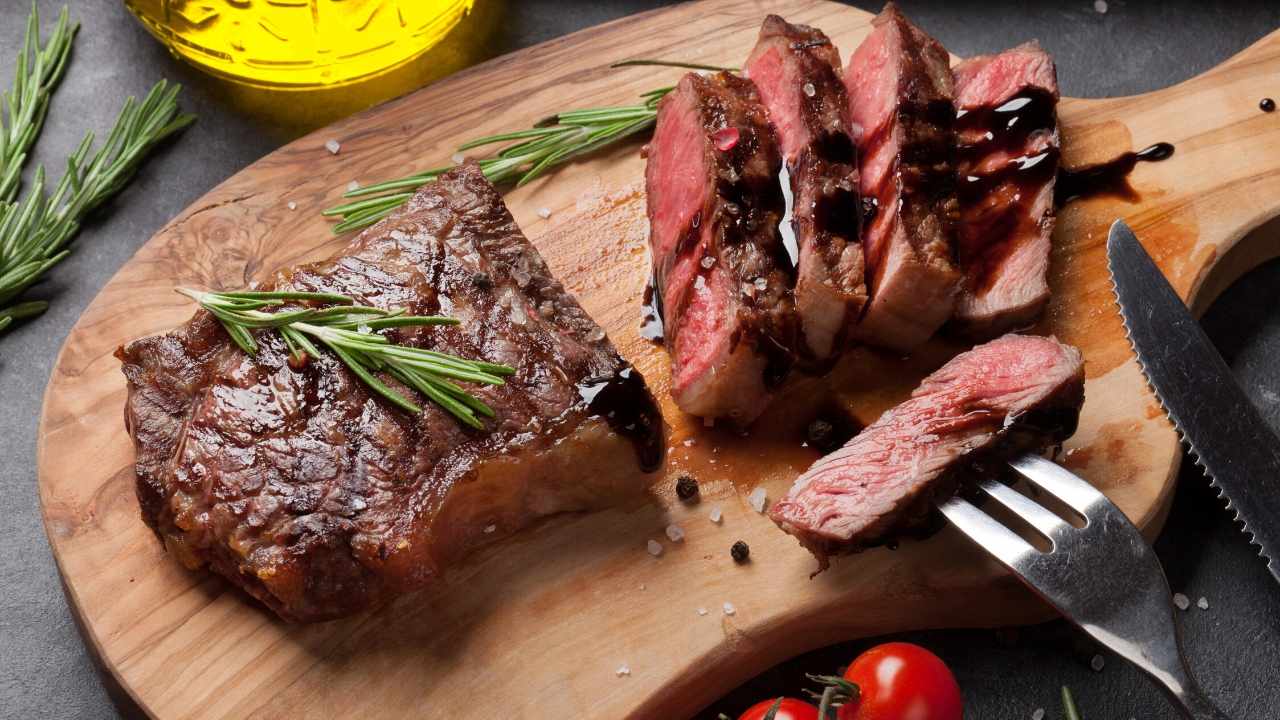 |
[TAG45]Healthline ranked the Mediterranean Diet number 1 for the following reasons: Numerous studies associate the Mediterranean diet with a reduced risk of heart |
 |
[TAG46]The Mediterranean diet originates in the food cultures of ancient civilizations which developed around the Mediterranean Basin and is based on the regular |
 |
[TAG47]Psychology Today reports: Eating more green, leafy vegetables and less red meat were associated with improved cognitive functioning in a recent study of older |
 |
[TAG48]This review of five human studies on the Mediterranean diet examines its effects on weight loss, various diseases, and the risk of death. |
 |
[TAG49]CNBC reports that Joan Salge Blake, Boston University’s clinical professor of nutrition says: “‘Poor protein [intake] can contribute to fatigue, and that’s the |
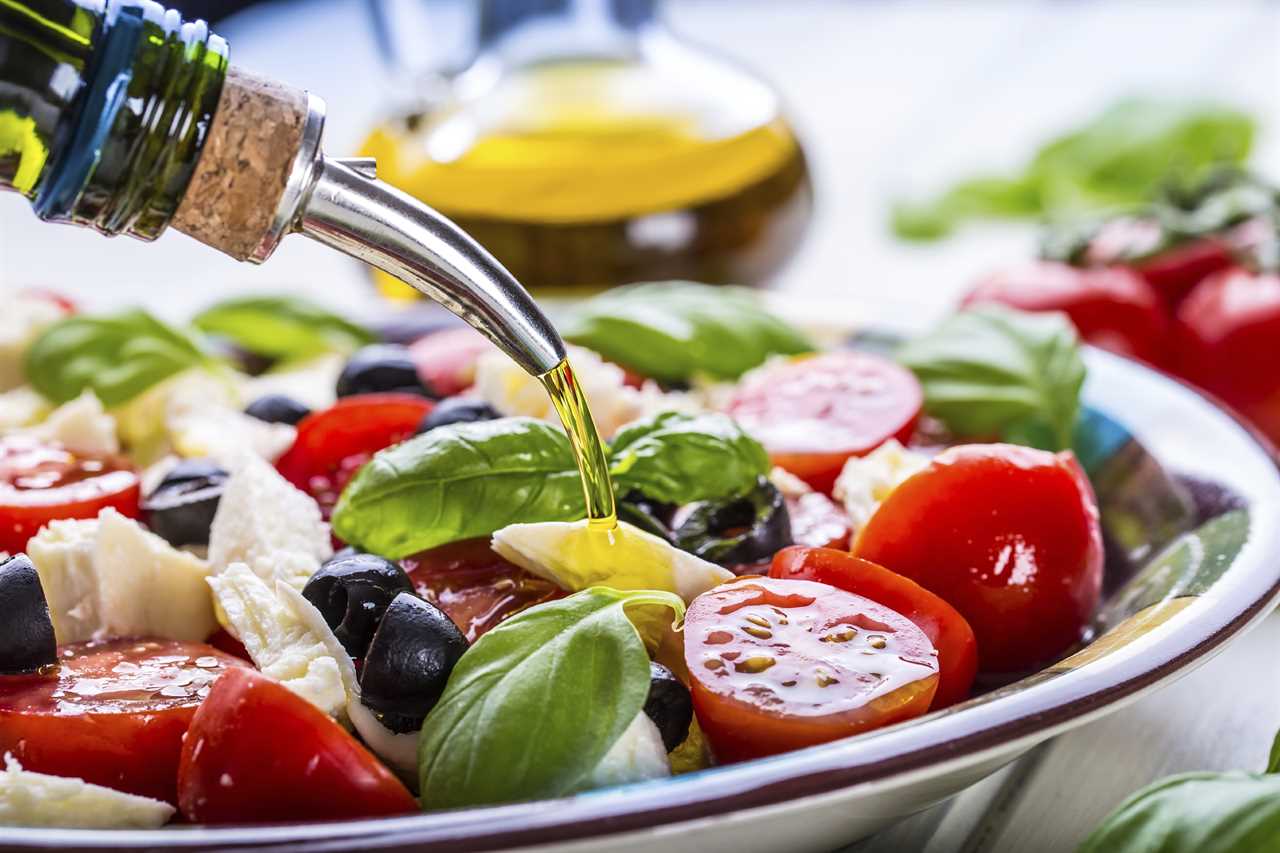 |
[TAG50]The Mediterranean diet has been linked to a number of health benefits, including reduced mortality risk and lower incidence of cardiovascular disease. |
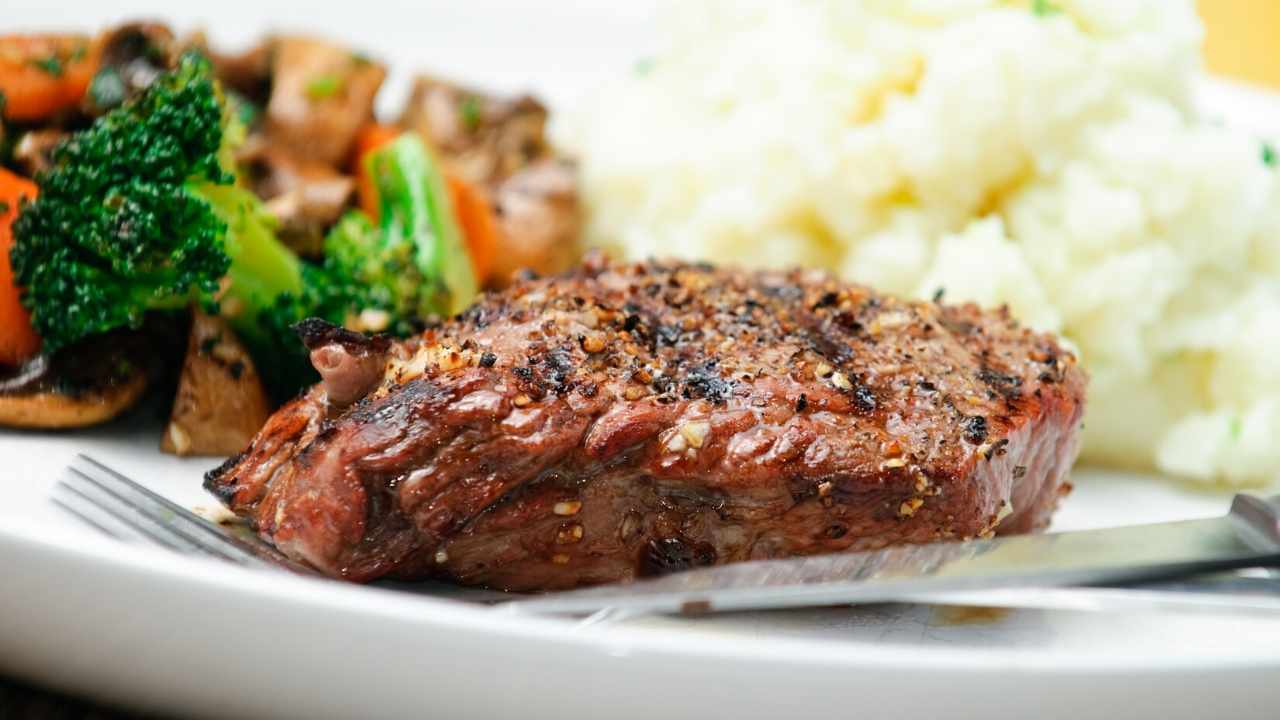 |
[TAG51]According to Olive Oil Times: The authors of the meta-study, published in Current Obesity Reports, noted that hypertension, type 2 diabetes mellitus, several |
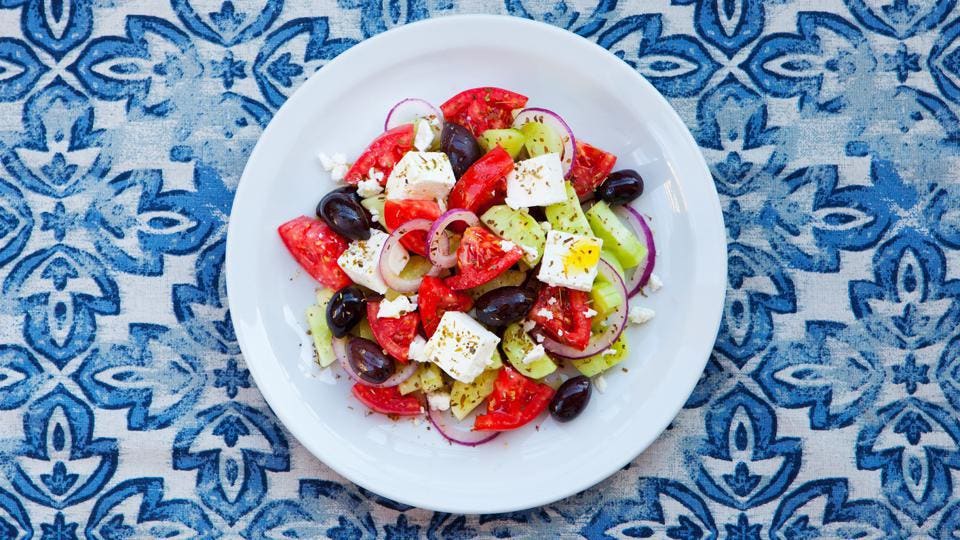 |
[TAG52]The Mediterranean diet, with its emphasis on fresh vegetables and fruit, whole grains, legumes, olive oil and fish, provides an array of health benefits, |
 |
[TAG53]The study described in The Epoch Times found: In the conclusions of this study, the authors prefer the Mediterranean diet over the Keto diet because the key to |
 |
[TAG54]The Mediterranean diet is a heart-healthy eating plan that emphasizes healthy fats, whole grains, fruits, vegetables, beans, nuts and seeds. |
 |
[TAG55]If a Google search is any indication, these are the 12 most frequently asked questions that people have about the Mediterranean diet. And if you’re interested |
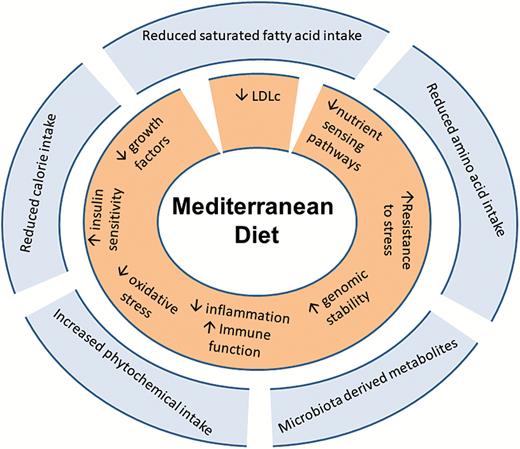 |
[TAG56]Abstract. Consuming a Mediterranean diet rich in minimally processed plant foods has been associated with a reduced risk of developing multiple chronic diseases |
 |
[TAG57]There’s new evidence that a Mediterranean diet can sharply reduce your chances of developing dementia even if you have a genetic risk for it. NBC medical |
 |
[TAG58]It’s an easy (and delicious!) change that can turn your diet into a disease-fighting tool. |
 |
[TAG59]Chair: Dr. Alexandros Haliassos, Maria Pagoni 3:05 pm - 3:25 pm Targeting molecular therapies to lung epithelial cytosols: targeted microbial exosome |
 |
[TAG60]There are many misconceptions about the Mediterranean diet. Learn what it really means and how it can help you live a healthier, longer life. |
 |
[TAG61]💡 Want to eat the #mediterraneandiet, but are not quite sure you how?? Then you're in the right place!! ⚡️ I've got you covered ⚡️ In this video, I'll |
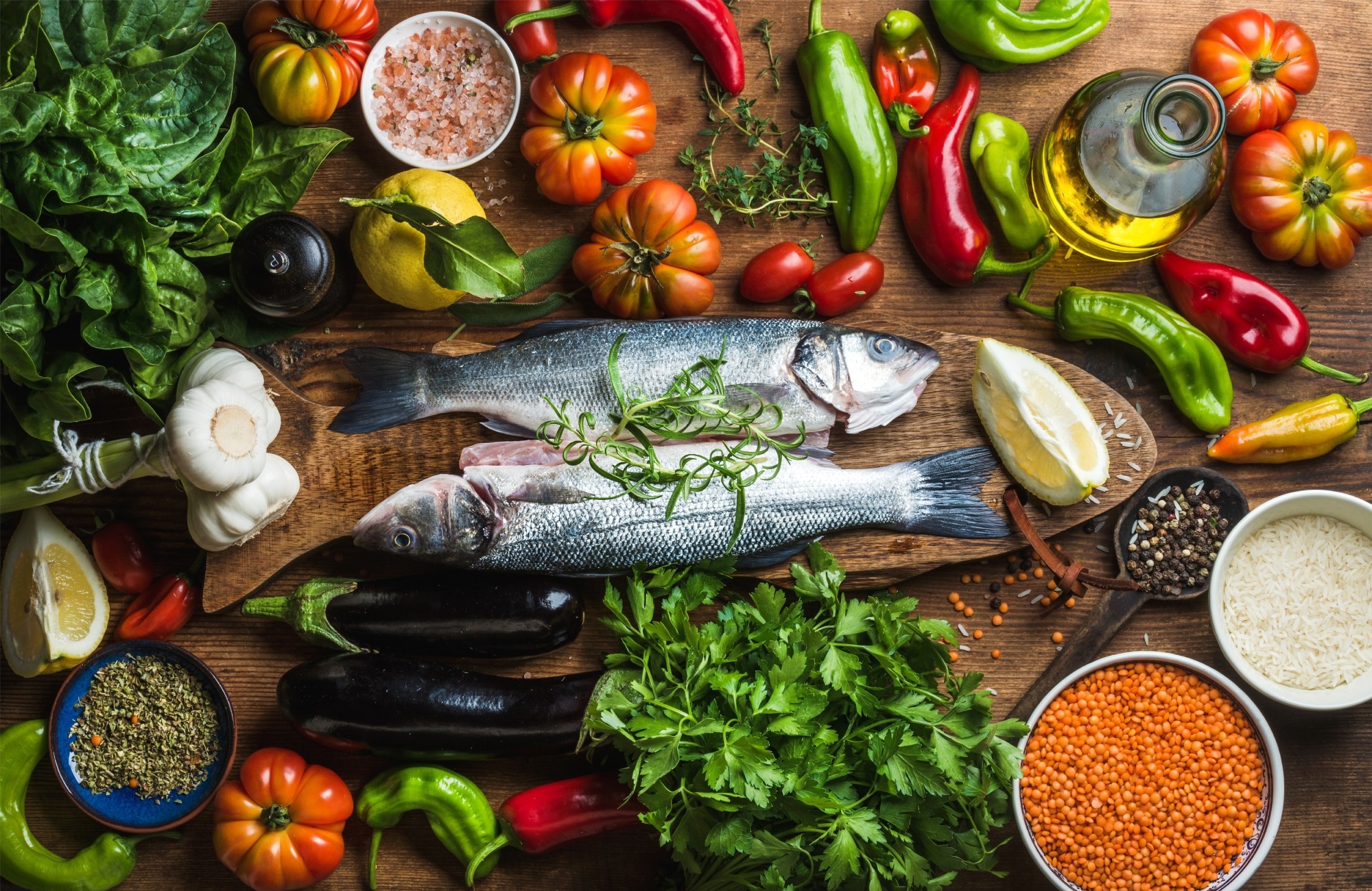 |
[TAG62]A review article published in the journal Experimental Gerontology describes the utility of Mediterranean diet (MedDiet) in the prevention and management of |
 |
[TAG63]In this video, we're going to explore the hidden truth about metabolic syndrome. We'll discuss the signs and symptoms of metabolic syndrome, and discuss the |
